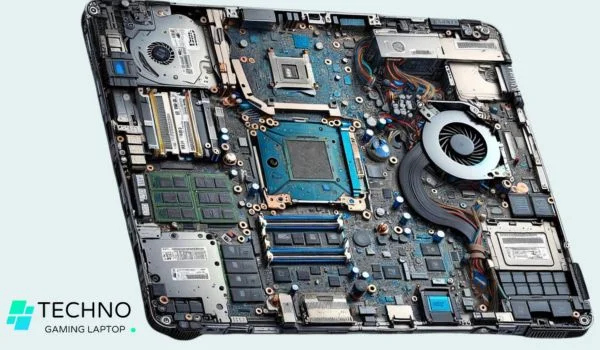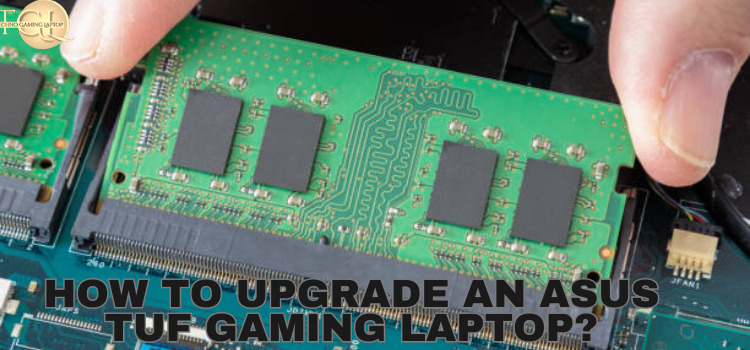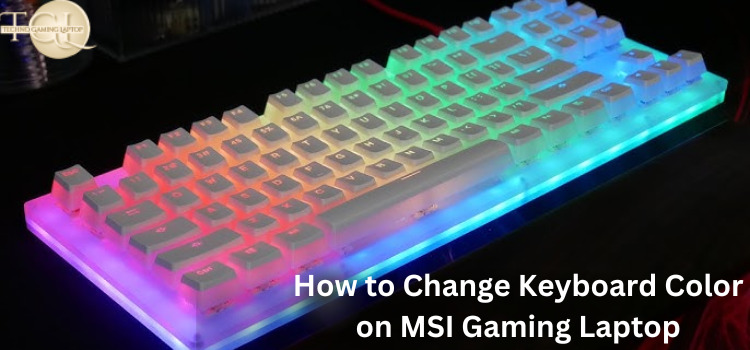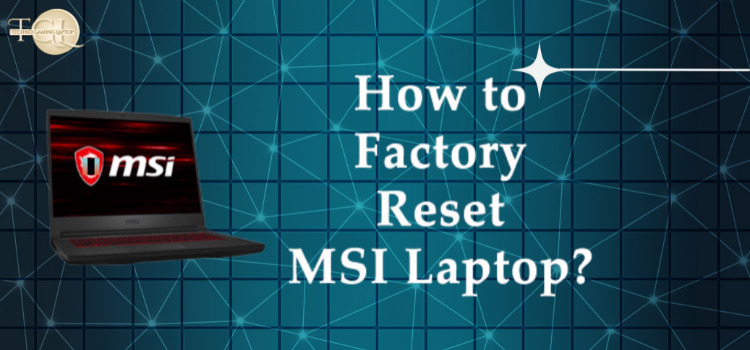In the ever-evolving gaming industry, one critical area regularly takes the middle stage – the garage. The call for larger and quicker garage options in gaming laptops has grown.
As gaming lovers, we discover ourselves pondering the question: ” How Much Storage Should A Gaming Laptop Have?”
To ensure the best gaming experience, no much less than 256GB of storage is generally recommended for a gaming laptop. However, for a greater recreation library and the maximum efficient overall performance, do not forget 500GB to 1TB.
Let’s Assess your gaming needs and budget to make the most pleasing choice for an enjoyable gaming journey.
Different Types of Storage Should A Gaming Laptop Have
Hard Disk Drives (HDDs):
- Traditional storage with larger capacity.
- Slower data access compared to SSDs.
- Cost-effective choice for more storage space.
Solid State Drives :
- SSD provide faster data access for quicker load times.
- Reliable, long-lasting, and strength-efficient.
- Ideal for reinforcing gaming performance.
Hybrid Drives (SSHDs):
- Combination of HDD and SSD technologies.
- Offers a balance between capacity and speed.
- Improved performance compared to HDDs.
External Drives:
- Portable storage solutions are connected via USB.
- Useful for expanding storage capacity.
- Ideal for storing additional games and large files.
Cloud Storage:
- Online storage is accessible through the internet.
- Provides flexibility and accessibility.
- It is useful for backups and some gaming applications.
Choosing the right garage alternative depends on your unique needs, balancing elements like velocity, potential, and budget for the most beneficial gaming experience.
SSD vs HDD: Making the Choice
SSD (Solid State Drive):
Upgrade a SSD being a speed car. It’s stylish, speedy, and reacts quickly. Since it doesn’t have any moving components, SSDs work super-fast. They guarantee swift game launches and fast system startups. Although they cost more for less storage compared to hard drive, their toughness and dependability make them popular among gamers who want speed.
HDD (Hard Disk Drive):
Think of an HDD like a reliable pickup truck: trustworthy, and economical. HDDs offer lots of storage room without hurting your wallet, which is great for gamers who have many games. They might not be as speedy as SSDs, but HDDs are practical. They safely keep games and files without costing too much.
Choosing Your Priority:
Think about what matters most to you when choosing between SSD and HDD. Want quick reactions and top speeds? Ready to pay more for it? Then, SSD’s your pick. But, if you value having lots of space without a hefty price tag, consider an HDD instead.
.
Recommended Storage for Gaming PCs
Casual Gamer
Speed on SSD : If you’re just a casual gamer, you’ll find that a 256GB or 512GB SSD is plenty. This size can hold a handful of games, the operating system, and key apps. It guarantees fast startup and loading
Cost-Effective: Casual gamers can prioritize cost savings without significantly compromising on performance. A smaller SSD meets basic needs in your laptop for speed and storage, balancing performance with budget.
Hardcore Gamer
Large Capacity SSD: Hardcore gamers should use a 2TB or larger SSD to allow for extensive game libraries, high-resolution textures, and future game installations.
High-Speed NVMe SSD: it is recommended for the best performance and a high-capacity you choses NVMe SSD . These drives give you speedy reading and writing ,reducing game loading times and enhancing the overall gaming experience.
Dual-Storage Solution: Consider a laptop with both an NVMe SSD for your primary games and operating system, and a secondary HDD (1TB or more) for additional storage of games, media, and backups. This setup offers a balance between speed and storage capacity.
Upgradeability: A laptop that offers easy access to upgrade or add additional storage can be a boon for hardcore gamers, allowing for future expansion as storage needs grow or as SSD prices decrease.
For both casual and hardcore gamers, SSDs are a clear choice for their speed and reliability. The main difference lies in the capacity and type of SSD, with casual gamers able to manage with smaller, more budget-friendly options, while hardcore gamers will benefit from larger, faster NVMe drives and the potential for additional HDD space.
How Much Storage do I Need for a Gaming laptop?
| Games | Storage Required |
| Call of Duty | 250 GB |
| Dota | 18 GB |
| Minecraft | 4 GB |
| Grand Theft Auto V | 90 GB |
| The Witcher 3 | 80 GB |
| Shadow of the Tomb Raider | 60 GB |
| Doom Eternal | 60 GB |
Read More: How To Upgrade Laptop For Gaming (2024)
Assessing Storage Needs and Requirements
Assess Needs:
- Evaluate the current and anticipated storage requirements for games and applications.
Storage Type:
- Select between SSDs for speed or HDDs for larger capacity based on preference and budget.
Capacity depends:
- Balance ample storage with budget rules, considering game sizes and future needs.
Speed and Performance:
- Check HDD RPM or opt for NVMe support in SSDs for enhanced performance.
Future-Proofing:
- Select a laptop with expandable storage options and M.2 slots for potential upgrades.
Cost Management:
- Balance storage needs with budgets, regarding laptops with a mix of SSDs and HDDs.
Multitasking:
- Consider multitasking needs, ensuring storage can handle diverse usage scenarios.
Cloud storage integration:
- Verify integration with cloud storage services for additional space, considering internet speed.
Backup and Maintenance:
- Select regular backups and organize files for efficient space utilization.
Adaptability to Trends:
- Assess the laptop’s ability to adapt to emerging gaming trends like VR and cloud gaming.
Manufacturer Recommendations:
- Follow manufacturer guidelines for adjusting storage components to avoid compatibility issues.
- Adjusting the storage of a gaming pc involves balancing needs, budget, and adaptability for an optimized gaming experience.
- A laptop in 2024 with at least 500GB of storage is needed to adjust different games and ensure smooth performance.
Considerations for Gaming Laptop Storage Selection
Game Library Analysis:
- Evaluate the size of games in the current library, including AAA titles and smaller indie games.
Gaming Habits Reflection:
- Consider gaming frequency and genre diversity to understand usage patterns.
Future Game Anticipation:
- Anticipate storage needs for upcoming game releases and updates.
Storage Type Differentiation:
- Understand the variations among storage types, e.g., SSDs for velocity and HDDs for ability.
Multitasking Consideration:
- Account for multitasking activities, such as streaming or content creation, requiring additional storage.
Balancing Speed and Capacity:
- Find a balance for optimal gaming experience without compromising storage space.
Budget Alignment:
- Align storage needs with budget constraints, considering cost differences between SSDs and HDDs.
Future-Proofing Options:
- Opt for a laptop with expandable storage to accommodate future upgrades and evolving gaming requirements.
Exploring Cloud Integration:
- Explore cloud storage integration for additional flexibility and space.
Manufacturer Guidelines Adherence:
- Follow manufacturer guidelines for storage upgrades and configurations to ensure compatibility and performance.
Tips for storage in gaming laptop
Capacity Consideration:
- Ensure a minimum of 500GB for ample space to accommodate multiple modern games.
Speed Priority:
- Opt for Solid State Drives (SSDs) for faster storage, reducing load instances, and improving ordinary gaming performance.
Balancing Budget:
- Consider budget-friendly options like hybrid drives, balancing speed and capacity to align with financial constraints.
Future-Proofing:
- Look for expandable storage options to future-proof your gaming laptop against increasing game sizes and evolving technology.
Multi-Tasking Support:
- Choose storage that supports multitasking, enabling smooth transitions between gaming, streaming, and content creation.
Efficient Updates:
- Prioritize storage that facilitates quick and hassle-free game installations and updates to minimize downtime.
Adaptability to Trends:
- Select a computer with adaptable storage to seamlessly combine with rising gaming tendencies like virtual reality (VR) and cloud gaming.
Organization:
- Optimize storage organization to prevent clutter, ensuring efficient use of space for a nicely-maintained device.
Compatibility Check:
- When upgrading storage, ensure compatibility with your gaming laptop model to ensure a smooth integration process.
Troubleshoot In Gaming laptop Storage
Game Size Mismatch:
Issue: Games are larger than anticipated, leading to insufficient storage.
Solution: Regularly check and update your game library, considering the increasing size of modern games. Opt for a larger storage capacity or manage your game installations more efficiently.
Slow Load times:
Issue: Games are loading slowly, affecting the gaming experience.
Solution: Consider upgrading to a Solid State Drive (SSD) for faster statistics access and decreased load instances. Ensure that your modern storage isn’t nearing its capability, as this will also impact overall performance.
Insufficient Space for Updates:
Issue: Lack of storage space hinders the installation of game updates.
Solution: Regularly review and remove unnecessary files or games to free up space. Alternatively, consider expanding your storage capacity to accommodate frequent updates.
Multitasking Interruptions:
Issue: Multitasking, such as streaming or content creation, leads to storage-related interruptions.
Solution: Assess your multitasking needs and ensure your storage capacity can handle concurrent activities. Consider upgrading to a larger and faster storage solution if necessary.
Budget Constraints:
Issue: Budget limitations make it challenging to meet ideal storage requirements.
Solution: Balance your budget and storage needs. Explore laptops with a mix of SSDs for speed and HDDs for additional capacity. Consider future-proofing options for eventual upgrades.
Unanticipated Storage Trends:
Issue: Emerging gaming trends demand more storage than initially considered.
Solution: Stay informed about evolving gaming trends and their associated storage requirements. Choose a gaming laptop with expandable storage options to adapt to these trends without replacing the entire system.
Cloud Storage Integration Issues:
Issue: Difficulties integrating or utilizing cloud storage for gaming.
Solution: Ensure your internet connection is stable and has enough storage space for gaming. Verify the compatibility of your gaming laptop with cloud storage services, and explore how cloud storage can complement your physical storage.
Compatibility and Performance Bottlenecks:
Issue: Upgrading storage components without adhering to manufacturer guidelines leads to compatibility issues or performance bottlenecks.
Solution: Always follow the manufacturer’s recommendations for storage upgrades and configurations to ensure seamless compatibility and optimal performance.
Disk without data loss Securely format your disk without losing any data.
Benefits for Add More storage on Gaming Laptop
Enhanced Gaming Experience:
- An adequate garage guarantees a continuing gaming revel in with faster load times and easy transitions between in-sport environments, in the end boosting general enjoyment.
Future-Proofing Investment
- Knowing storage requirements allows for the selection of a gaming laptop with expandable options, safeguarding the investment against evolving game sizes and requirements.
Efficient Library Management:
- Awareness of storage needs aids in the effective management of the game library, preventing issues like insufficient space for new releases or updates.
Optimized load times:
- Optimal storage ability and pace, especially with Solid State Drives (SSDs), contribute to decreased load times, offering an aggressive benefit in rapid-paced multiplayer video games.
Extra Storage :
- Boost your gaming laptop’s space by adding extra storage for more games and seamless performance, gradually becoming more powerful.
Seamless Multitasking:
- Adequate storage supports multitasking activities, such as streaming or content creation alongside gaming, ensuring a smooth and uninterrupted experience.
Budget-Friendly Decisions:
- Understanding storage needs facilitates balanced decision-making, aligning the budget with the ideal storage configuration for gaming requirements.
Adaptability to Trends:
- Awareness of storage demands related to emerging gaming trends enables the selection of a laptop that seamlessly merges with technologies like virtual reality (VR) or cloud gaming.
Efficient Organization
- Knowing storage needs facilitates organized file management, optimizing space use and preventing clutter that could impact system performance.
Longevity of Laptop:
- Proper storage management, considering both capacity and speed, contributes to the overall longevity of the gaming laptop, ensuring it remains relevant and capable of handling new releases.
Reduced Frustration and Downtime:
- Accurately determining storage requirements minimizes the risk of running out of space, encountering slow load times, or facing interruptions during gaming sessions, reducing frustration and downtime.
Compatibility and Stability:
- Understanding storage needs aids in selecting components compatible with the gaming laptop, ensuring system stability, and preventing issues related to hardware incompatibility.
Expert Opinion:
Renowned gaming technology expert advises balancing storage speed with capacity and recommends Solid State Drives (SSDs) for faster performance. Emphasizes future-proofing with expandable storage options and considers the evolving trend of multifunctional gaming laptops, suggesting cloud integration for added flexibility.
Conclusion
Picking the right storage for your gaming laptop matters. Consider your games, budget, and the future. Experts say to go for speedy solid drives (SSDs) and keep an eye on expandable options. A balanced choice ensures a smooth gaming experience and sets you up for the evolving world of gaming.
Frequently Ask Question
Q1: What is a good amount of garage space for a gaming laptop?
For top-quality gaming overall performance, a gaming computer should preferably have at least 16 GB of random get-right of entry to memory. This guarantees easy gameplay and multitasking talents, meeting the demands of modern games and packages.
Q2 : Is 256 GB of numerous garage capability for a gaming laptop?
If you’re playing GTA V, it already uses up to 90GB. If you have 500GB and 256GB of space, you won’t have room for other works or many game programs to download.
Q3: How much SSD is enough for gaming?
A minimum of 256GB SSD is recommended for gaming, but for a more extensive game library and optimal performance, consider 500GB to 1TB.
Q4: Can I improve the storage on my gaming computer later?
Many gaming laptops permit storage upgrades, but it’s essential to check your precise model’s compatibility and recommendations for a trouble-free upgrade.





